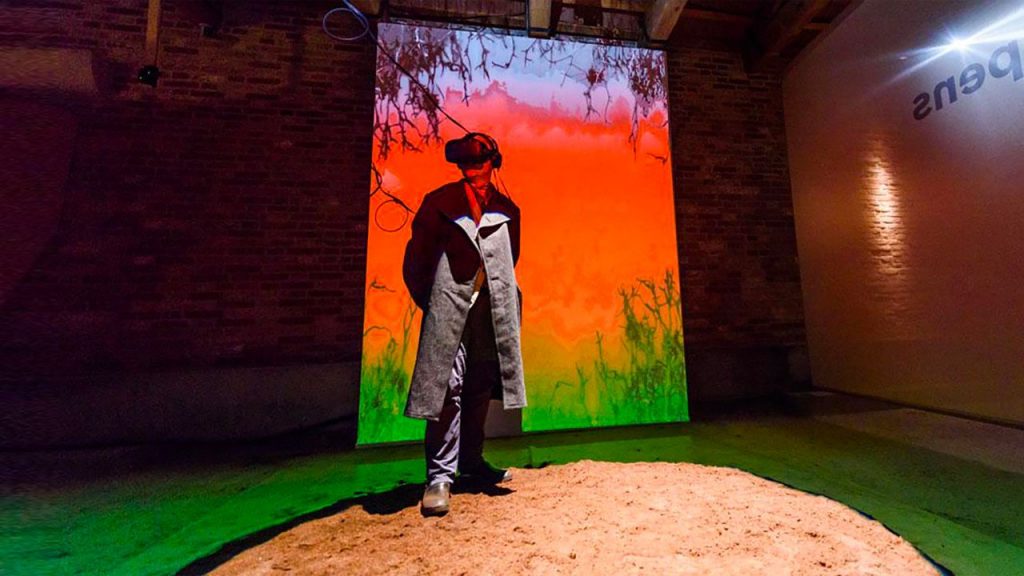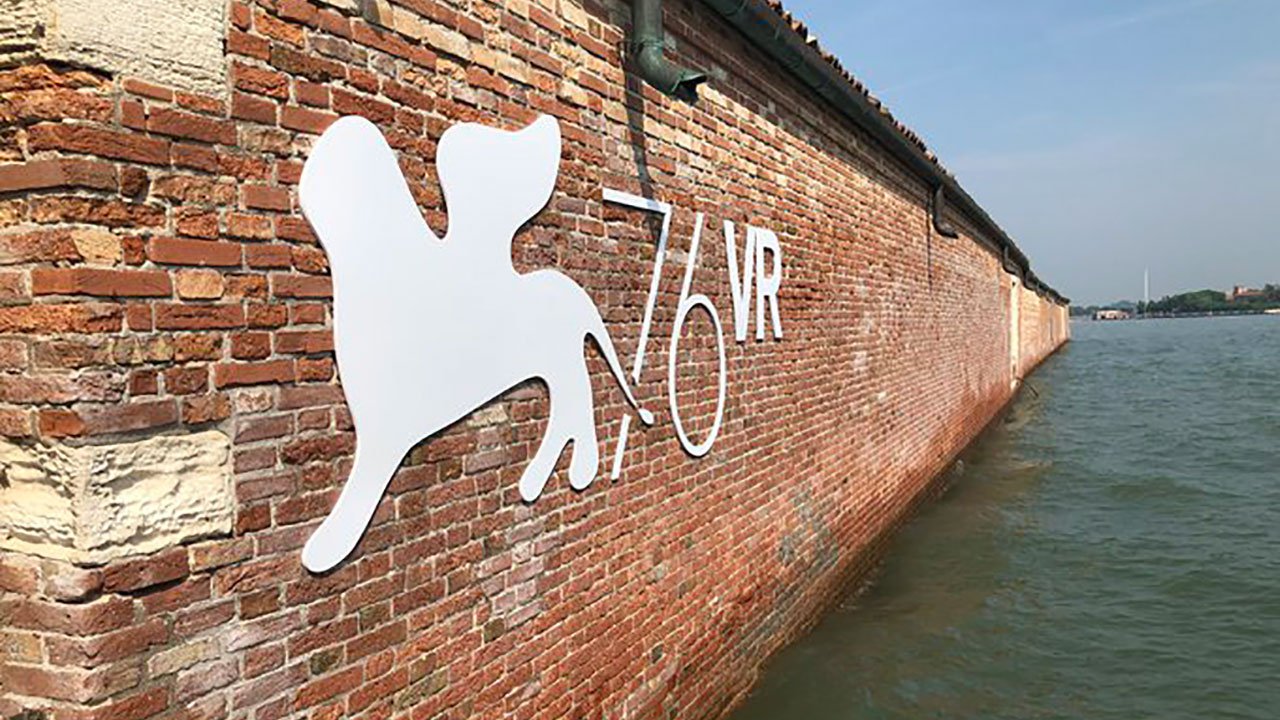Venice VR is not only an immersive festival and one of the most beautiful venue to showcase VR. Filmmakers and producers are also welcome all year long to work on their project through the Biennale College Cinema – Virtual Reality which support the development of Italian and international projects.
Up to 3 VR projects also receive support to be presented at the next Venice International Film Festival in September 2020. See more
We discuss with co-curator Michel Reilhac about their work on the Biennale College, selection of immersive contents and the next edition of Venice VR – which is going forward (link).
Virtual Island and online meetings
Michel Reilhac – Within the Venice Biennale, we are in constant discussion with Alberto Barbera (artistic director of the Mostra) for the festival, and with Roberto Cicutto for all questions relating to the Bienniale College which remains an autonomous department of the event. The festival will run as scheduled from September 2 to 12, including Venice VR (see submission deadline). Our work is going as planned with this objective of proposing a physical meeting. At the end of May we will reassess the situation with regard to health regulations in the north of Italy.
M. R. – Several scenarios are available to us, from a 100% real or 100% virtual event, but one thing is for sure : we will design a strong online VR platform to access as much as possible of our selection and design specific events for an exclusive online experienece. Whatever the option chosen, we are thinking about programming certain works online, and offering headsets within the VR Island to participate in these virtual presentations. Working on a virtual variation of our physical location seems very coherent in terms of the situation. Festival-goers will be able to find certain meetings from the island online (360 videos, meetings with creators, happy hours, etc.). Conversely, we are thinking of original virtual proposals to strengthen the link between the physical place and a connected public.
M. R. – For the College, we canceled last minute the last planned physical workshop in Venice early March. In three days with the help of VRrOOm we were able to offer a completely virtual solution where the whole program was able to take place. Thanks to the work already accomplished with Louis and his team for the festival! We are talking now to improve this platform, in conjunction with conventional teleconferencing tools. The goal is to be able to replace certain additional workshops over the year, which gather between 40 and 15 people each time.
M. R. – Our next test with Liz Rosenthal (co-curator of Venice VR) will be to select the works in June. It’s a big technical issue for us, which normally requires going to Venice with the help of several assistants to discover the projects. Again, we have to see if remote solutions can be implemented, even if it is not ideal.

Virtually screening virtual contents
M. R. – For us it is not a new thing: we have been working with Louis Cacciuttolo and VRrOOm for 3 years to offer part of our selection online after the festival. For rights reasons, we can only offer part of our 360 films each year, as some producers have previous agreements with broadcast platforms. And we were already working on online events, including the piece LOVESEAT invited last year which combined physical and virtual performance. We were interested in understanding how it could work, including on the mix of audiences. Also the technological options have greatly simplified in a few months, in particular with the Oculus Quest type autonomous headsets.
M. R. – Today teaches us several things. First of all, we are going to relearn how to appreciate the relationship to reality, to physical encounters. Despite all the Skypes in the world, you do not replace real-life rendez-vous. We are going to find a value in physical proximity which was a little lost before, and which can benefit mostly small events. Just look at how the music industry has reinvented itself around live concerts. As for events such as Venice VR, it will be necessary to offer online alternatives in addition to the physical festival.
M. R. – Then this is going to change how we consider remote work, which can solve many traffic problems, congestion in cities and real estate, carbon footprint. I hope that we will not totally go back on these points. The virtual platforms around collaborative work are fascinating on this subject (MeetInVR…), we are looking at them closely for the Biennale College. This new virtual presence will certainly diversify, perhaps working by subject (BigScreen for cinema) or size of audience (conference, workshop …).
Venice VR, going bigger?
M. R. – Over the next 3 or 4 years, I consider that we will especially have an impact at the local level. Each festival will welcome a regional audience, even from neighboring countries, who can make the effort to come. For the others it is necessary to develop, to increase the virtual venue you can imagine. I want to keep the attractiveness of a place like Venice VR, and do everything to give artists, professionals and the general public a high-quality experience. And do the same online. This seems to me to be an inevitable underlying trend. You have to think hybrid. For us, this involves original online activities and showcases.
M. R. – Since the opening of our call for projects 2020, everything is going forward as usual: we receive the majority of them in the final days of the submission process (May 15 this year). For the most part, these are beta experiments, models, proof-of-concept, simulations we have to overview. It seems obvious that the immersive scene is restructuring. On the creative side, many stopped for lack of means. Stronger studios and companies are investing in creative VR because they see value in research and development, believing that the maturity of the medium is coming in 3 or 4 years. Unfortunately, the small independents are disappearing, because funding sources are still scarce and the business model based on paid distribution is not yet in place. They are the real artists, the real authors of the sector.
M. R. – There is also clearly a new wave of investors who are no longer looking for a quick return on investment. When creators of the first generation – 5 years ago – who benefited from a real investment, they disappeared very quickly because of the unreasonable pressure from their investors and a desire for profitability at a very short term. Unlike these bad examples, there are now people coming to the market ready to take the time for longer developments. Somehow it’s healthier, more realistic. Including on a creative level. By cons applications, niche markets, there is a real explosion of immersive formats and a growing adoption of VR or AR. There will be a return effect of virtual reality through practical applications, by Facebook or Apple i.e., and no longer make it a universe of insiders, geeks. Then the authors will certainly come back.



Leave a Reply
You must be logged in to post a comment.